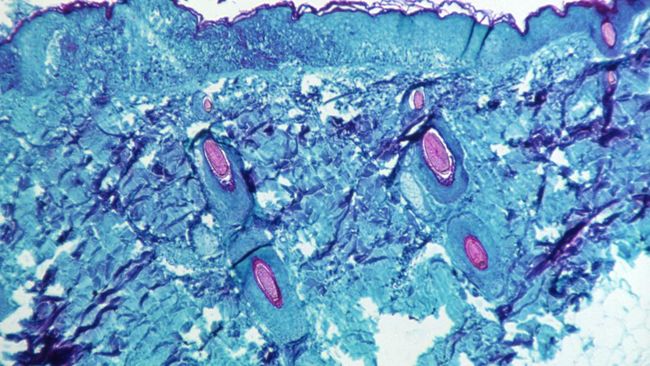Disease monkey pox caused by monkeypox virus or monkeypox virus (MPXV). There are several symptoms of monkeypox that may appear.
The first human case of monkeypox was discovered in 1970 in the Democratic Republic of the Congo. Then cases of monkeypox emerged and spread throughout Central and West Africa.
However, recently several countries in Europe, the United States have announced the spread of the disease.
One of the countries not far from Indonesia, namely Australia, has also reported its first case of monkeypox on Friday (20/5) yesterday.
The first monkeypox patient in Australia was a tourist who had just returned from England.
The Victorian state health department confirmed that a 30-year-old patient arriving in Melbourne was infected with the monkeypox virus. Meanwhile, a probable case (possibly monkeypox) was identified in Sydney in a man in his 40s who had recently traveled to Europe.
Launching the US Centers for Disease Control and Prevention (CDC), the symptoms of monkeypox are similar to other smallpox, but milder. The main difference between the symptoms of smallpox and monkeypox is that monkeypox causes swollen lymph nodes (lymphadenopathy) whereas smallpox does not.
“The distinguishing feature of monkeypox infection from smallpox is the development of swollen lymph nodes,” the CDC said.
Symptoms of monkeypox usually appear within 7 to 14 days, but can also range from 5 to 21 days after infection.
Some symptoms of monkeypox to watch out for:
1. Fever
2. Headache
3. Muscle pain
4. Backache
5. Swollen lymph nodes
6. Hot and cold
7. Fatigue
Then within 1 to 3 days after the fever, the patient will develop a rash. It often starts on the face and then spreads to other parts of the body.
The rash consists of lesions that develop in the following order:
* Macula, or flat discolored lesions
* Papules or lesions that are slightly raised
* Vesicles or lumps with clear fluid
* Pustules or lumps with yellowish discharge
* Scab
The lesion will disappear after it dries. Monkeypox symptoms generally last 2 to 4 weeks and go away without treatment.
Jimmy Whitworth, Professor of International Public Health at the London School of Hygiene & Tropical Medicine, Jimmy Whitworth, said: “Treatment is generally supportive because there is no specific medicine available. However, vaccines are available that can be given to prevent disease progression.
Be aware of the symptoms of monkeypox that appear early on.
(pop/chs)
–


